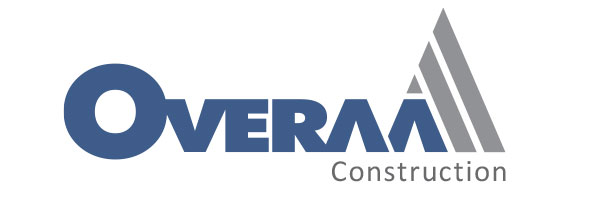CBPA's California Legislative Update 05/07/2021

- ***ALERT - SCAQMD INDIRECT SOURCE RULE PASSES
- PROP 13 REFORM TUBED IN COMMITTEE
- ENERGY COMMISSION RELEASES PROPOSED CHANGES
- JOB KILLERS KILLED
- CONCERNS GROW OVER 1031 EXCHANGE ELIMINATION RUMORS
- CBPA 2021 CALENDAR
***ALERT - SCAQMD INDIRECT SOURCE RULE PASSES
This afternoon, after hours and hours of public testimony, the South Coast Air Quality Management District (SCAQMD) voted to approve new Indirect Source Rules on over 3,000 Warehouse Distribution Centers in Southern California.
Despite our industry’s long battle opposing the measure, recently led by NAIOP SoCal, and ample evidence to show how it will hurt jobs and increase costs over anything that is moved from one place to another, a majority of SCAQMD board members passed the highly controversial rule.
Citing some of their own studies, it puts onerous fees and regulations on warehouses that are vital to the state’s goods movement while doing little to move the needle on air quality, nonetheless, the board decided to move forward with the proposal.
While this just affects warehouses under the SCAQMD’s authority, there was a clear push from the Board to get this kind of action to be taken at the state level, hindering our warehouse operations across the entire golden state. Thank you to those that took the time to make our voices heard during that meeting today.
The ISR is targeting warehouse and logistic center operations, which have been deemed to be essential businesses by the State during the COVID-19 pandemic and have been in operation the entire time to deliver food and goods.
In Southern California alone, over 18 million people rely on warehouses and the goods movement system to get items needed to survive. Warehouses provide an array of jobs for people of any level of education and skillsets and provide jobs that lead to upward mobility.
We believe the SCAQMD's proposed rule will do nothing to reduce emissions while imposing a significant new tax on the Supply Chain at the worst possible time. That is compounded by the fact that we believe the rule is not feasible in that it puts responsibility on warehouse operators over things they cannot control. Warehouse operators cannot control truck fleets and decrease truck emissions and have no control over how truck engines are made.
PROP 13 REFORM TUBED IN COMMITTEE
Yesterday the Senate Governance and Finance Committee rejected SB 706 (Bates; R-Laguna Niguel) a bill that would correct an outdated interpretation of property “change of ownership” for taxation purposes. The measure was defeated despite the strong support of the Commercial Real Estate Industry and tax experts such as advocates Howard Jarvis Taxpayers Association.
“Politics has once again prevailed over common sense,” said Senator Bates after the hearing. “It is clear that tax-and-spend interests are not interested in fixing a problem with Prop. 13. They would rather use the problem as a pretext to gut Prop. 13 in a future election. This cynical political strategy has been going on since 2014 and has only hurt local governments who will continue to lose $348 million each year for essential services. Californians deserve better.”
Real estate companies do not support the gaming of the system some individuals have used to avoid re-assessment; in fact our members have fought for years to assure that re-assessment happens as soon and accurately as possible. Delaying a tax assessment in such a manner does not benefit the efficient management of a portfolio of properties, can lead to lost revenue, and can reflect poorly on our industry.
SB 706 would have prevented future abuses of Proposition 13 protections against skyrocketing property taxes, by removing the ability to structure transactions in a way that avoids appropriate reassessment.
CBPA has supported fixing this area of the law for many years and worked with then Assemblymembers Tom Ammiano and Raul Bocanegra on a similar measure in 2014.
We appreciate that Senator Bates has remained tenacious on this topic and continue to pursue this common-sense reform. Click here for more information.
ENERGY COMMISSION RELEASES PROPOSED CHANGES
Yesterday the California Energy Commission released its proposed changes for the 2022 Energy Code. It is a 548 page document and will impact all aspects of energy use in commercial buildings. Our industry has participated in many hours of meetings and hearing providing input and recommendations and fighting some very expensive ideas.
This is a massive document with lots of technical changes. We are working to read and identify issues with he proposed changes to prepare for the first hearing that will begin soon.
In the meantime, to give you a head start, below find a link to the document hot off the presses. We hope you will send to your own experts and consultants and provide feedback on issues of concern.
Express Terms 2022 Energy Code, Title 24 Parts 1 and 6
JOB KILLERS KILLED
We are pleased to report a number of CalChamber identified “Job Killers” have been stopped. These bills that missed the deadline to pass out of the policy committee are:
AB 1295 (Muratsuchi; D-Torrance) Housing Development Ban: Would have removed local land use authority and exacerbated the housing crisis by prohibiting cities and counties from entering into a residential development agreement in Very High Fire Severity Zones, which would have stripped local communities of their land use authority and applied a one-size-fits all ban on development throughout large swaths of California.
AB 1400 (Kalra; D-San Jose) Government-Run Health Care: Would have eliminated private insurance and choice-based health care by creating an exorbitantly expensive new state-run health care system that would have cost California more than $400 billion, which ultimately would have been funded by taxpayers, and delayed access to providers, diminished quality of health care, and eliminated jobs in California.
SB 55 (Stern; D-Canoga Park) Housing Development Ban: Would have removed local land use authority by prohibiting any residential or commercial construction in either Very High Fire Severity Zones or State Responsibility Area, which would have effectively banned development activity in 1/3 of the state of California and exacerbated the existing housing crisis.
SB 467 (Wiener; D-San Francisco) Oil and Gas Development Ban: Would have eliminated thousands of high-paying California jobs and required California to import even more foreign oil by shutting down approximately 95% of oil and gas production in California.
SB 499 (Leyva; D-Chino) Housing Development Ban: Would have prohibited cities and counties from designating any land uses that have potential to adversely impact disadvantaged communities, even if any potential impacts could be mitigated. In doing so, the bill would have removed local land use authority, created new costly CEQA litigation and worsened the state’s housing crisis.
To see a list of all this year’s job killers, visit click here.
CONCERNS GROW OVER 1031 EXCHANGE ELIMINATION RUMORS
Real Estate Groups in Washington D.C. are preparing to educate lawmakers on several potential items in the President’s Budget. High on the list is protecting the ability to conduct a 1031 Exchange which benefits small and large real estate investors – commercial and residential.
As we are await the official proposals, click here to read a story outlining some of the anticipated proposals.
CBPA 2021 CALENDAR
Tuesday-Wednesday, June 8 – 9, 2021
California Commercial Real Estate Summit
& CBPA Annual Board Meeting
Zoom
Thursday, October 21, 2021
Industry Awards Dinner
The Renaissance Hotel, Newport Beach
Thursday-Friday, December 2 - 3
Strategic Issues Conference & CBPA Board Meeting
Embassy Suites, Napa Valley
For more information on any of our events, please contact Melissa Stevens at 916-443-4676 or mstevens@cbpa.com.








































